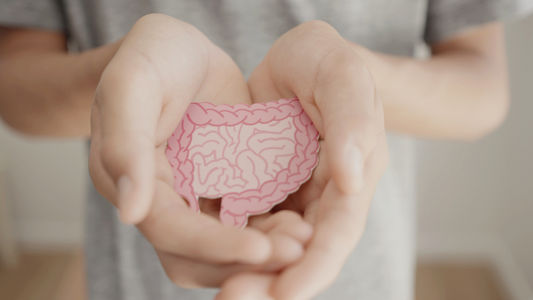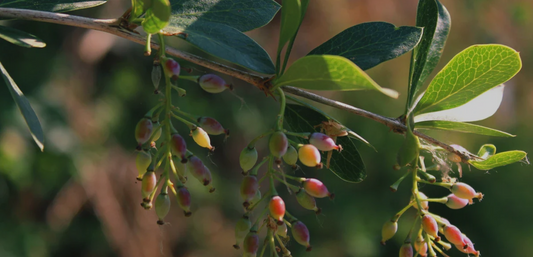
A child's health begins in the bowel
share
The key to your child’s good health begins in the bowel, and a healthy bowel is one with a good, healthy balance of friendly bacteria. Your child’s digestive system simply can’t function at its best without an abundance of good bacteria. They're nature’s internal healers. Your child's body is thriving with trillions of microorganisms, many that live inside their digestive system. Together, they create a population of friendly bacteria known as the intestinal microbiome. There is a mutually beneficial relationship that occurs between our body and our intestinal microbiome. This is called a symbiotic relationship; we help out each other.
Friendly bacteria are not limited to just the digestive system, they also live on our skin, in our nose and mouth, and in our reproductive and urinary systems. These internal healers are acquired in the very early stages of life and stay with us for the rest of our days. They are invisible to the human eye, but they are there, trillions of them. So, let's dive deeper into this amazing world of probiotics and why they are so important to your child's health.
We used to think that a baby was born into the world, with an almost sterile microbiome. However, research has recently revealed that some colonisation of friendly bacteria begins in the uterus. If you are pregnant, your diet, environment and the use of medication during pregnancy can also affect the microbiome of your unborn baby.
Your baby is further exposed to a large proportion of good bacteria through the birth canal during a natural delivery. As a mother, you can enhance your new baby’s gut microbiome by breastfeeding and skin to skin contact within the first few days of birth.
The colonisation of your baby’s intestinal microbiome develops over a period of about two years. Science has also discovered that the microflora of an infant is different to that of a child or an adult.
An amazing world exists within your child’s digestive system; it contains over one thousand species of beneficial bacteria which make up their microbiome environment.
Bifidobacterium bifidum and Lactobacillus salivarius are two species which have been found in breastmilk and therefore the gut of breastfed babies. Interestingly, Lactobacillus salivarius is also found in the mouths of children born via natural delivery.
These two species may help support and stimulate your baby’s immune system function and help establish a healthy immune response.
Up to 80% of the immune system can reside in a child’s gut. Immune cells and good bacteria in the digestive tract help prevent the over growth of bad bacteria and microbes which may be ingested along with food.
Your child’s gut microbiota plays an important role in the way they absorb their nutrients, immune system development and overall health.
The natural biome can be affected by health conditions, medications, diet, physical and emotional health. In order to help nourish a healthy biome it is important to ensure that children are provided a diet full of fresh fruit and vegetables, whole grains and fermented foods such as good quality yoghurt.
Children today are exposed to many more environmental contaminants via fast food, air pollution and stress, more so than in the past twenty to thirty years.
Often parents or carers are working, which often results in more children attending daycare or after school care. Children are spending more time indoors on electronic devices and often less time outdoors. The increased exposure to classmates, often in larger classes can see them picking up ills and chills, leading to more days off sick and a depleted immune system.
Don’t forget your child’s diet! They will not simply “eat better when they are older”, by then it may just be too late. A child’s good eating habits start from the time they start solids. Lead by example as a parent, what they see you eat and do, they will naturally want to copy.
A variety of flavours and textures will help to expand your child’s taste and encourage a diverse range of friendly bacteria that will develop in their system, creating a happy tummy and healthy immune system. Remember, if they do not like something straight away, do not disregard it, try again at another time or perhaps try to prepare it in a different way.
Some probiotic species (such as Lactobacillus rhamnosus, Bifidobacterium bifidum, Lactobacillus paracasei and Bifidobacterium lactis) can actually help to support the immune system and help reduce the number of sick days by shortening the duration of an illness.
Supporting and feeding your child’s microbiome can help maximise their health and help support and maintain their immune and digestive systems. The microbiome protects them against germs, breaks down food to release energy, and produces vitamins. As a child’s microbiome is diverse and ever changing, and probiotic species do not exist alone, taking a probiotic supplement can help to enhance or restore health to their gut microbiome.
share
Stay Informed. Feel Your Best.
Get expert tips and actionable health advice. Be the first to hear about Caruso's product launches and receive exclusive promotional offers.
Join our newsletter today.



